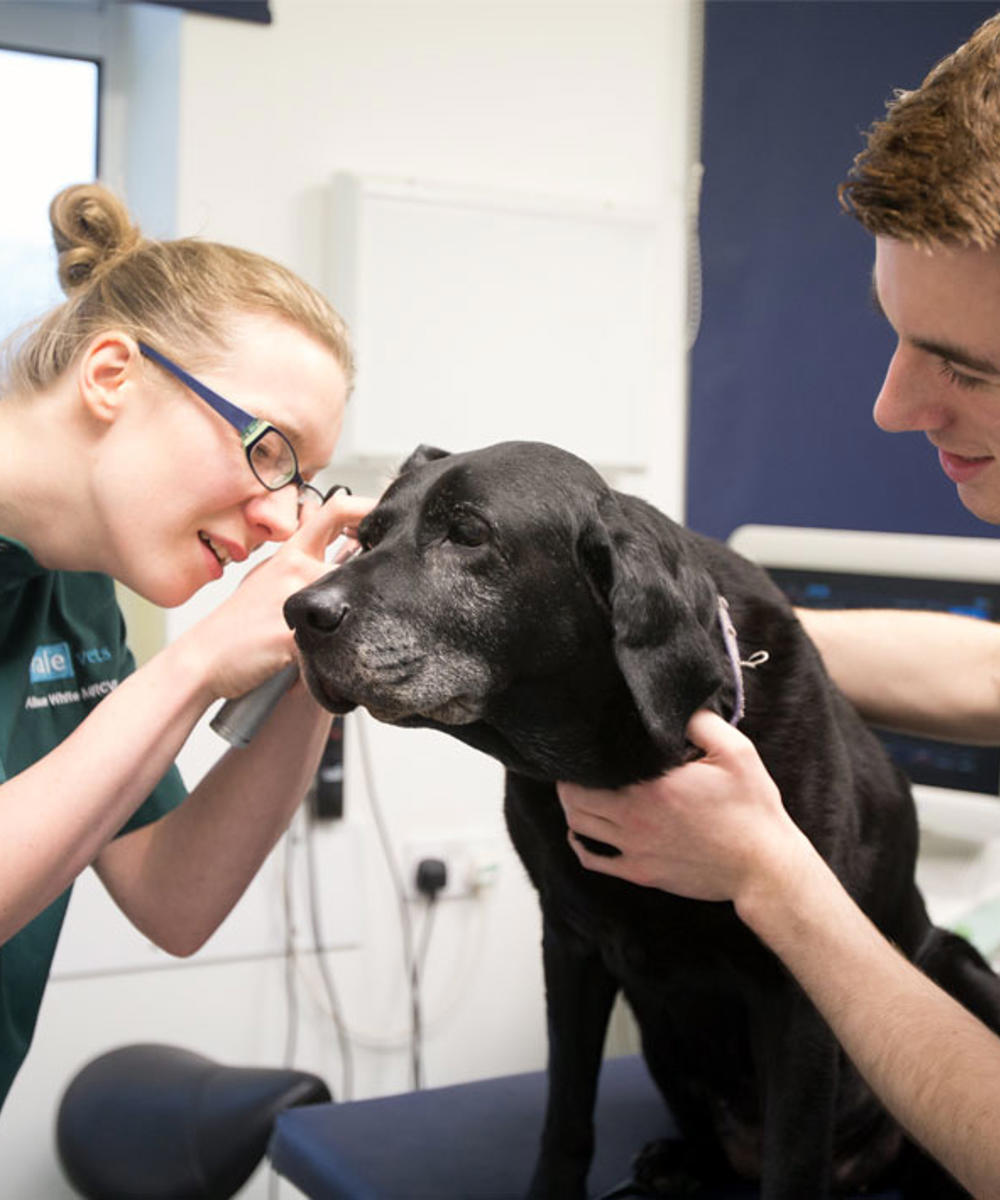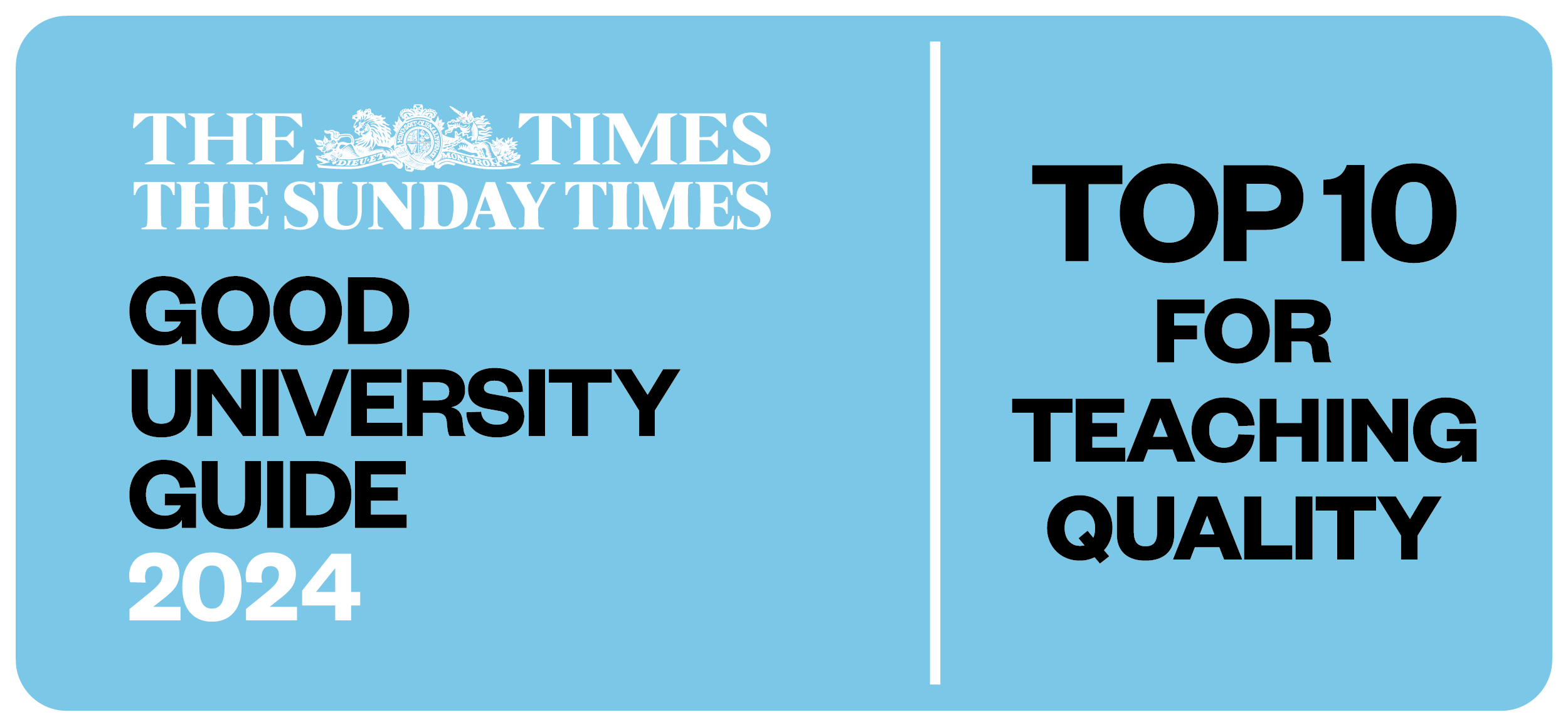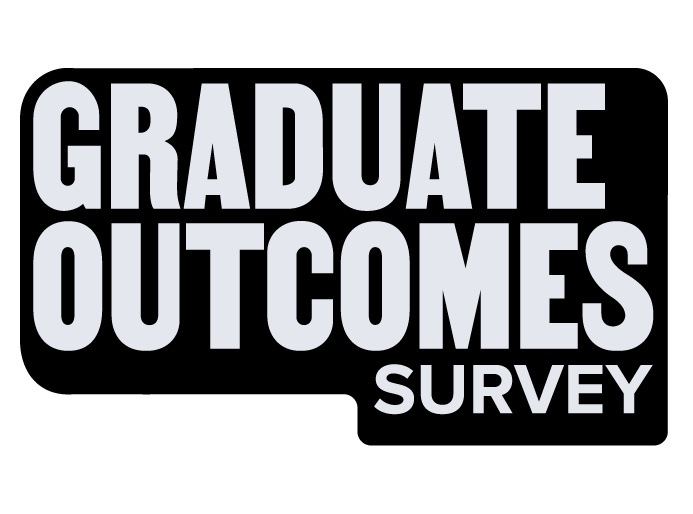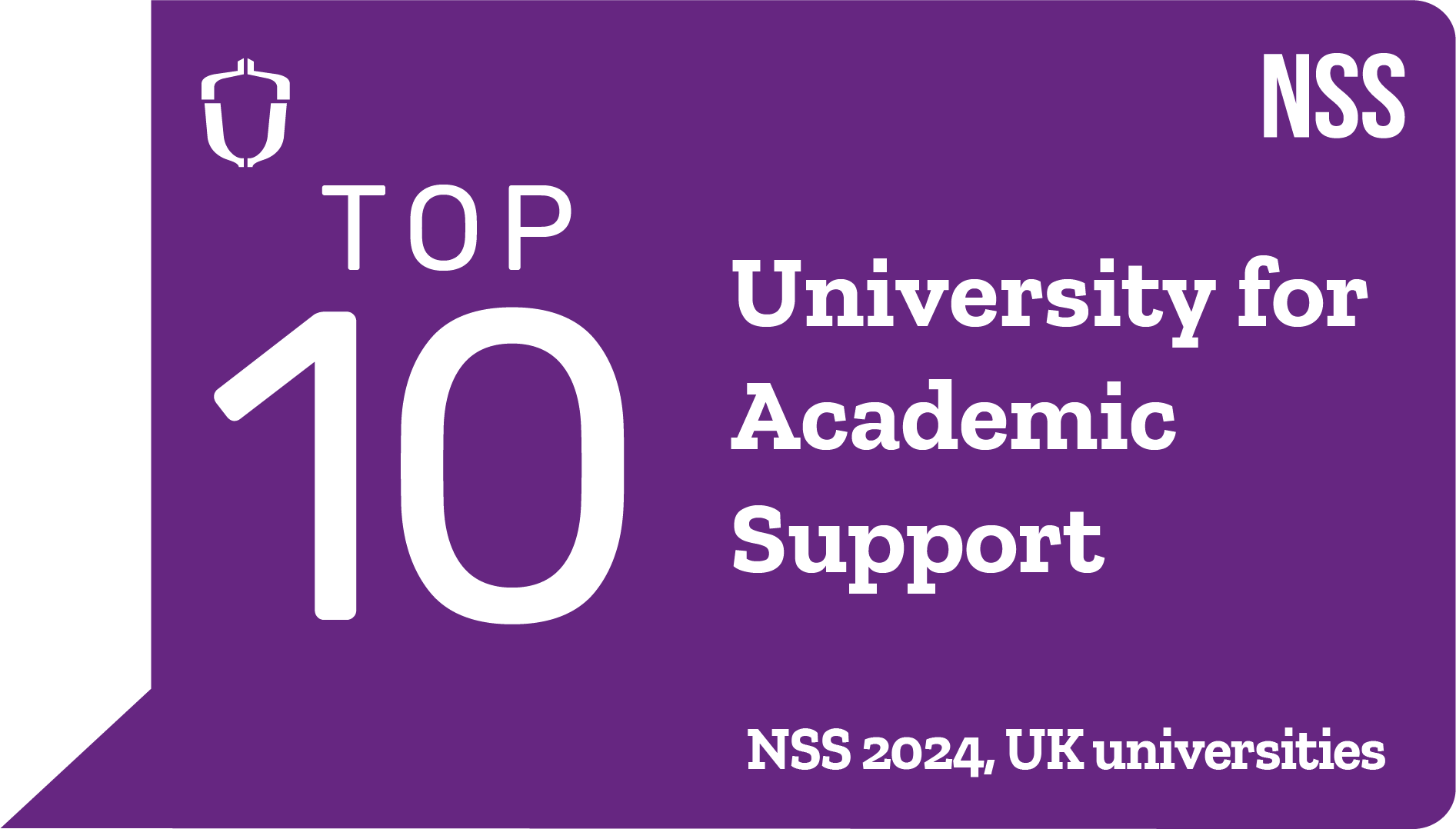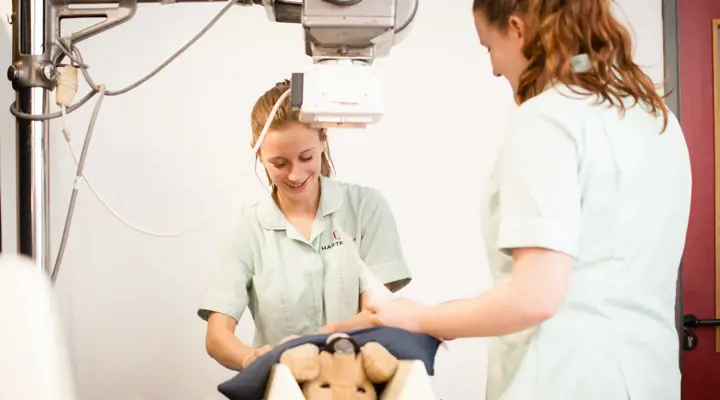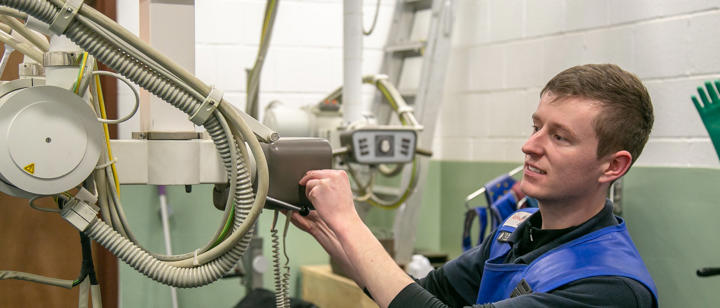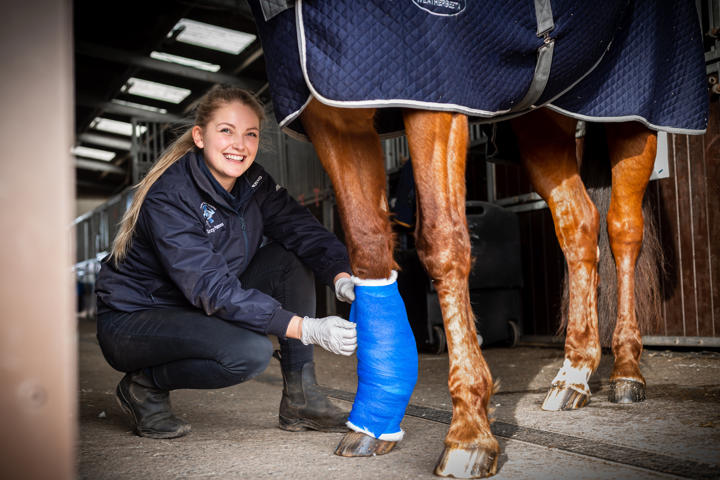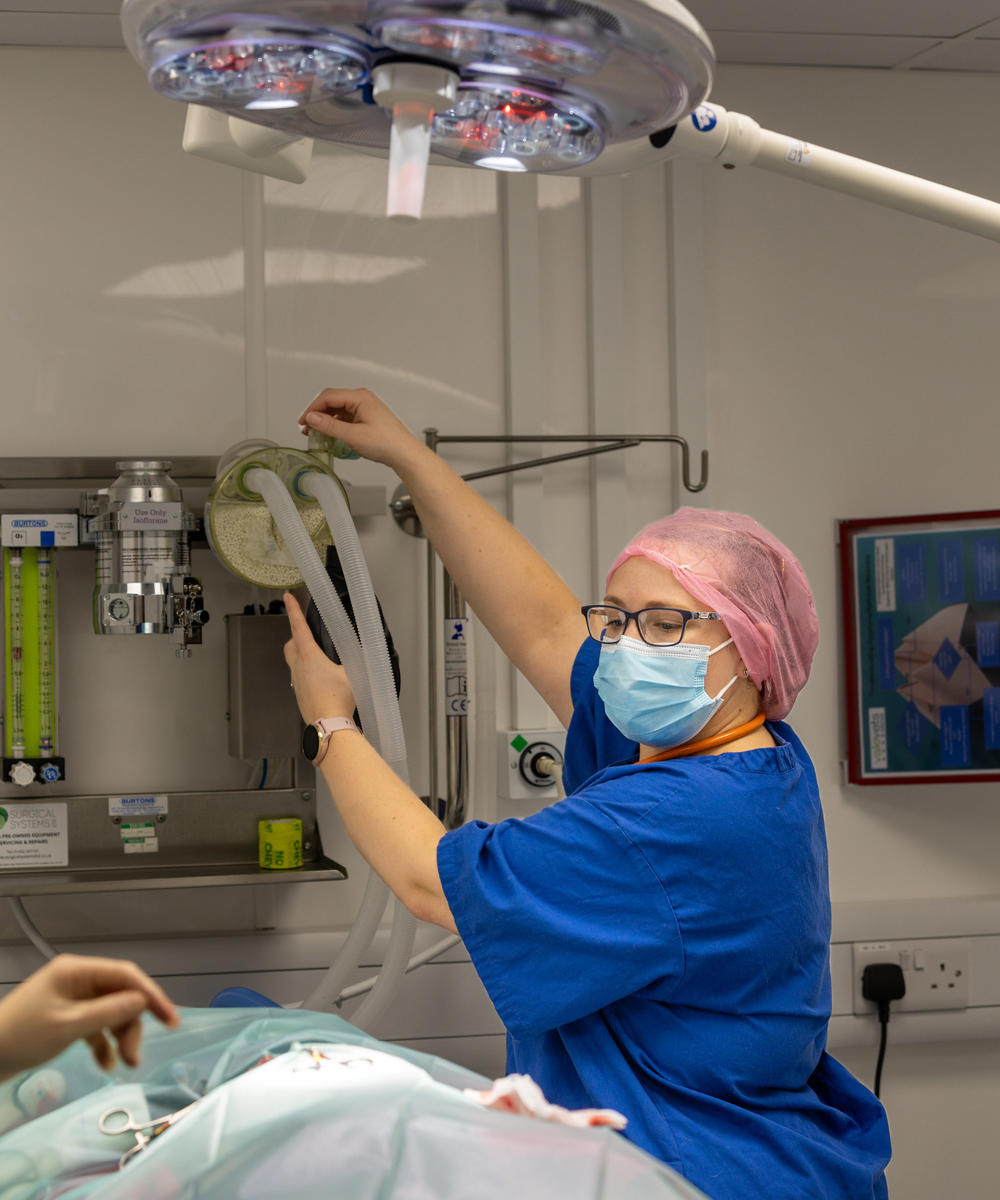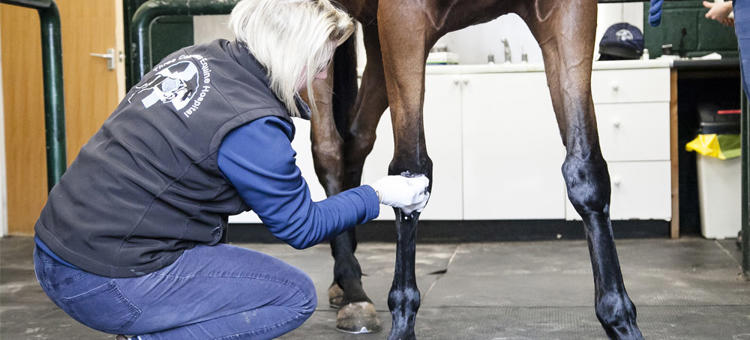You’ll be taught by RCVS-Registered Veterinary Nurses, who will support you to complete your qualification and become a confident veterinary nurse. You may also have guest lectures from other industry professionals in the veterinary sector to strengthen your learning and professional networks.
Our Veterinary Nursing Clinical Skills Centre will enable you to refine your nursing skills in a simulated environment, before applying them to your patients in practice.
Alongside developing skills to provide outstanding nursing care, you’ll learn how to evaluate and apply research to what you do, using the latest scientific findings to problem-solve and change ways of working for the better.
Royal College of Veterinary Surgeons accreditation
This course is accredited by the Royal College of Veterinary Surgeons (RCVS). This means that on graduation, you’ll be eligible to join the RCVS Register of Veterinary Nurses and practise as a Registered Veterinary Nurse. On joining the course, you’ll need to enrol as a Student Veterinary Nurse with the Royal College of Veterinary Surgeons (RCVS).
Successful completion of the course will give eligibility to enter the RCVS Veterinary Nursing Register and allow you to legally practise as a Registered Veterinary Nurse in the UK.
- UCAS | A typical offer for this course is 64-80 UCAS tariff points or equivalent.
- GCSE | A minimum of 5 GCSE A* to C, (or 9 to 4 where numeric grades are being awarded) or equivalent, to include English Language, Mathematics and a Science.
- A-level | Typical offer is CC-CDD or equivalent. This must include a minimum of one A Level and must include A Level Biology at grade D or above.
- Vocational Award | Typical offer is a MPP-MMP in an Extended Diploma in a Biology subject.
- Access | Typical offer is 64-80 UCAS tariff points in an Access to Higher Education Diploma in a relevant subject to include a minimum of a pass in Level 3 Biology.
- IB | Typical offer is 64-80 UCAS tariff points in an IB Diploma, to include a minimum of one Higher at H3 or above, including a Higher in Biology.
This must also include Maths and English Language at a minimum of Standard Level S3 if equivalent GCSEs have not been obtained.
- Scottish Highers | Typical offer is 64-80 UCAS tariff points in Scottish Highers. This must include a minimum of two Highers including Biology.
- Irish leaving Certificate | Typical offer is 64-80 UCAS tariff points in the Irish Leaving Certificate. This must include a minimum of Higher Biology. This must also include Maths and English Language at a minimum of Ordinary Level.
- OCR Cambridge Technical | Typical offer is a MPP-MMP in an Extended Diploma in a Biology.
We will interview all applicants that are shortlisted.
We may interview mature applicants and those with non-traditional qualifications to ensure this is the right course for you.
Applicants who are successful after submitting an application will be invited to attend an assessment day as part of the selection process.
An IELTS level 7.0 English qualification is required for applicants whose first language is not English and who have not achieved a GCSE Grade 4 or above (or C or above where numeric grades are not being awarded) in English Language.
Previous learning towards a university-level qualification or relevant work experience may count as credit for this course.
Please contact us for further information.
Email us
We're committed to supporting you to fulfil your unique potential. You'll benefit from a strong support network from day one to be the best you can be. This will range from your personal tutor and specialist academic support team (our Achievement and Success Centre) to dedicated wellbeing and employability (Innovation, Careers and Enterprise) centres.
Each year of your course will be made up of two semesters, within which you’ll study compulsory modules on different industry-focused topics.
Academic support
You’ll have your own personal tutor while you’re here who will support you to succeed in your studies.
Alongside this, you’ll have access to our academic and wellbeing support teams who run regular workshops and one-to-one sessions to support students to make the most of their studies.
We also have a comprehensive bank of online study skills resources to help you make the most of your qualification.


